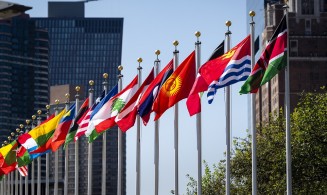Since literacy is a fundamental right for all, how can one explain that 62 per cent of women in Africa are denied the right to literacy? How can current trends be changed to prevent nearly 800 million adults, among whom a high proportion of women are still illiterate in 2015?
While there is a willingness on the part of stakeholders to meet international commitments on gender equality and the empowerment of women, efforts remain insufficient in light of the scale of the challenge.UIL is addressing this issue through capacity building for literacy and gender research. It has adopted a dual methodological approach to achieve the objectives of training in countries such as Burkina Faso, Guinea, Mali, Niger and Senegal, all with very low literacy rates, especially among the female population. The central strategy that generated the training was based on a permanent concern to develop a dynamic of learning. It turned out that three main elements deserved particular attention to bring about real change: 1) revisiting literacy policies and programs from a gender perspective; 2) develop a strategy to create a critical mass of gender and literacy actors and invest more in research in these areas; 3) initiate learning dynamics to produce tangible results.
Download: Gender and Literacy: Building Capacity for Research in Africa (PDF 640 KB, French)
- Author/Editor: Carolyn Medel-Añonuevo; Madina Bolly
- Gender and Literacy: Building Capacity for Research in Africa
- UIL, 2011
- ISBN 978-92-820-2102-6
- Available in: French






